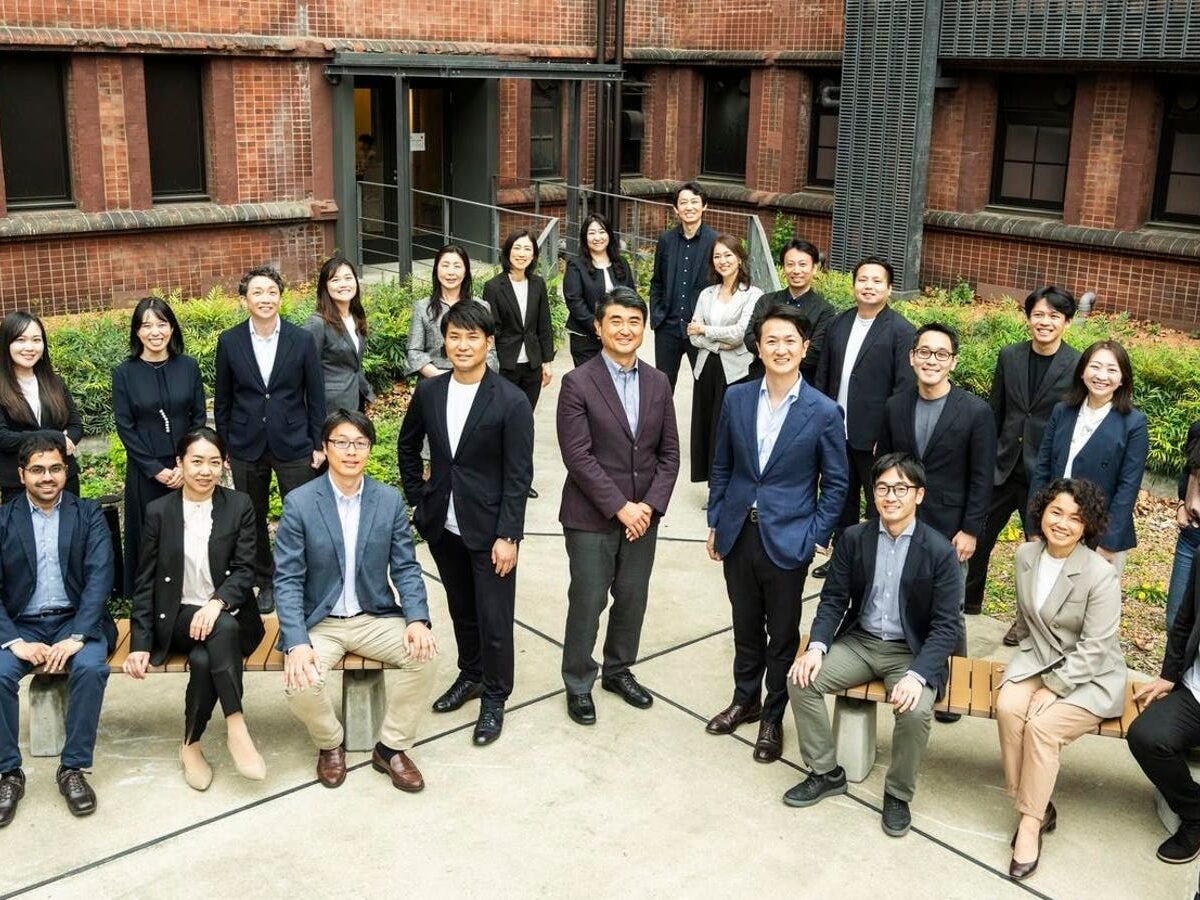The UTEC team.
Courtesy of UTEC
The University of Tokyo Edge Capital Partners (UTEC), a Japanese venture capital firm specializing in science and technology startups, has announced the close of its sixth fund with 47 billion yen ($326 million) in committed capital, bringing its total assets under management to over $1 billion.
Through the fund, the firm will invest between $10 million and $20 million in seed and early-stage startups across a range of deep technology fields, including healthcare and life sciences, information technology, and physical sciences and engineering.
“We are very open to every kind of opportunity,” says Tomotaka Goji, managing partner, CEO and president of UTEC, in a video interview. “Even though we are very connected with Japanese academia, like the University of Tokyo, we are privately run and funded by institutional investors worldwide, so our aim is to seek high-growth opportunities that could deliver good returns.”
Founded in 2004, UTEC is one of Japan’s largest deep-tech VCs, with a portfolio spanning more than 150 companies, chiefly originated from or backed by academic institutions. These include peptide-based drug discovery and development company PeptiDream, which listed on the Tokyo Stock Exchange in 2013 and now trades at a market capitalization of over $1.4 billion; and cell-free DNA synthesis and amplification technology provider OriCiro Genomics, which was acquired by pharmaceutical giant Moderna in 2023 for $85 million.
An employee at PeptiDream’s laboratory in the The University of Tokyo.
Tomohiro Ohsumi/Bloomberg
“One unique aspect is that we don’t necessarily just do due diligence, but we also do a co-creation process with scientific founders,” adds Goji. By identifying startups at their pre-incorporation stages, UTEC says it offers potential founders assistance with recruitment, global expansion assistance and company governance.
UTEC’s investment strategy is rooted in sourcing science and technology innovations from universities, research institutions, and industry partners. While mostly operating in Japan, UTEC also invests in startups based in the U.S., India, Southeast Asia, and Europe, with the goal of helping Japanese startups expand abroad and bringing international startups into Japan.
“When it comes to very plausible, promising startups, or the seeds of the technology coming to UTEC, we have an internal system of evaluating them with AI and data science,” says Noriaki Sakamoto, managing partner and COO of UTEC. As a component of the firm’s due diligence process, this system involves identifying promising technologies and researchers by analyzing academic and research publications, and assessing their “startup readiness” through citation network analysis.
To Sakamoto, these include technologies that can target global challenges such as aging populations, labor shortages, and applying AI technologies to legacy industries. In life sciences and healthcare, specific investment areas include the drug discovery sector, which benefits from high unmet medical needs, and the medical device sector, which includes therapeutic devices where significant exit opportunities exist.
The launch of the new fund coincides with the Japanese government’s efforts to bolster the country’s startup ecosystem. Last October, Prime Minister Shigeru Ishiba announced his administration’s ambition to make Japan the largest startup hub in Asia, building on existing policy initiatives such as the Small Business Innovation Research program and five-year national startup development plan. Originally announced in 2022, the national startup development plan aims to increase Japan’s startup investment to 10 trillion yen by 2027, creating 100 unicorns in the process.





